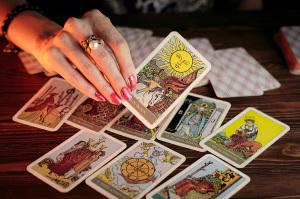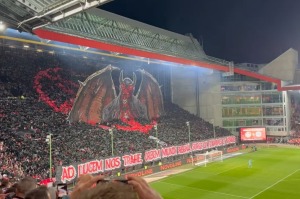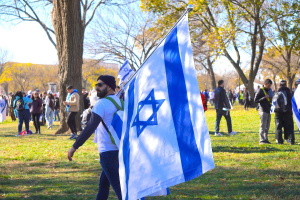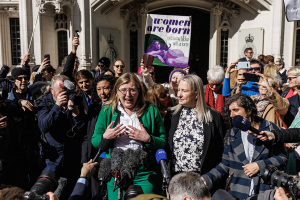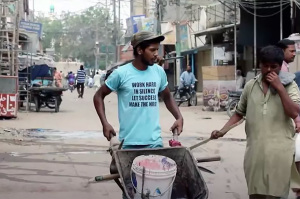Interview: Luis Palau on 'A Friendly Dialogue Between a Christian and an Atheist'
NEW YORK - When Luis Palau shares the word of God, he's usually speaking before a live audience of thousands at one of his contemporary evangelistic festivals worldwide. But in his new book, Palau sits down in a one-on-one conversation with an atheist, who is also a Chinese diplomat, in hopes of making a positive step toward bringing the Good News to a country known for its repressive policies on religion.
First released in China, A Friendly Dialogue Between a Christian and an Atheist is the first-ever book between a Chinese diplomat, Zhao Qizheng, and a Christian evangelist, Luis Palau. For the Chinese, the book touches on the basic beliefs of Christianity as explained by Palau. For the West, it offers a unique perspective on Christianity and the philosophy of religion as seen from Chinese culture and beliefs.
Dr. Palau spoke to The Christian Post, while he was in New York City for the book's launch in the United States, about the obstacles he faced while preaching the Gospel in China, why he thinks talk about eternity "stirs up the Chinese soul," and what he hopes to do in China before the 2008 Summer Olympics.
CP: As a Christian evangelist, you've traveled to many countries to preach the Gospel. I wanted to know what are some of the unique challenges you've encountered when preaching God's word in China?
Palau: In China?
CP: Yes.
Palau: Actually, in the opportunities I've had to preach in the open doors, in churches, and in talking one on one, I haven't found any obstacles, as far as my message. Nobody in China has ever checked – what are you going to say, or you can't say this. Or some people in America say that you can't give an invitation to give your life to Christ. I've done it every single time. Everywhere. And every time, some have given their life to Christ.
In Beijing, the last time, the last few times, I had many people stand up and shout, "I believe!" out loud. And there's been the president… Nobody's ever stopped me. So I haven't encountered.
What I'm trying to get now, which is in process, is permission [for rallies]. I've been very open about it so this is no sort of a secret of sorts. From the first day I went to Shanghai – the first time in 2000 – I pointed out the highest part of the region there. I said I wanted to see that part, we were very high. Looking at that park, I want to see that part with half a million Chinese and I'm telling them about Jesus Christ. So I've been very open that I wanted to have rallies. That permission we're still working on. So that I would suppose would be an obstacle.
CP: What are some of the holdbacks?
Palau: I don't know! I know that they have said to me, "Be patient. Keep coming back. In China, we'd like to befriend a person, get to know them, trust them. Then we start asking….giving things."
And at this point, I think we're very close now to having a public rally in one of the major cities.
CP: Which cities would you hold it in?
Palau: Well, naturally, for me I start at the top. Beijing, Shanghai, Nanjing…what is it called down South? Hangzhao? Which is seven and a half million people! And most westerners have never heard of it. It's just about an hour south of Shanghai. I think what I was told by those who know is probably start on the outside and keep coming closer to the center. So, we're looking forward to it any day now.
CP: Well, the 2008 Summer Olympics is going to be held in Beijing and that's going to a big opportunity. A lot of human rights groups have used that as a platform to bring up issues … from Darfur to North Korean refugees to underground churches. So will you be using that event or that time for any kind of…
Palau: I believe you ask for permission, from my perspective as a foreigner coming to a foreign country, like I do in the states or anywhere else, you ask permission to hold rallies. I don't think it would be helpful for me. But I have asked officially from people here and over there, any person can go in there and take Bibles, as long as they're not selling them, but if they're giving them away, they can take all the Bibles they want. And I think that's going to happen. And I think that's very valuable. I'm encouraging people to book their flights because it's going to be jammed and to get a hotel and bed and breakfast because it's going to be jammed with people. But they're going to be free, they're not going to be stopped, to express the Gospel, to preach.
As far as human rights, that's a political thing, I think. But as far as Christians, I am encouraging them to go. I told the government people in China that I'm going to encourage people to come and witness for Christ. And they were afraid that the athletes would start. Athletes are there to play and win. But they may witness for Christ like some Chinese athletes do. The main woman soccer star in China is a strong believer who carries a Bible everywhere. And if we do our rally, we've asked if she could come and testify her faith. The famous soccer player.
CP: I saw in the book that you signed Mr. Zhao's Bible with a verse from John 10:28. The NIV version reads, "I give them eternal life. They shall never perish. No can snatch them out of my hand." Why did you choose that particular verse to sign in Mr. Zhao's Bible?
Palau: For good reason.
I was very touched by this. It's not in the book but I always tell the story of my father dying. My father became a believer at the age of 22, 23. He died at the age of 34. He died knowing he was going to heaven, that he had the assurance of eternal life. He died clapping and singing a song about heaven and quoting Philippians 1: "I'm going to be with Jesus which is better by far." This morning, the Christianity Today guy asked him and he told that story. He said, "To me, that was the most touching thing that I heard Mr. Palau say because we in China, have no hope. We despair before death." His mother is dying. And he said, "To me, his view of eternity was so, so moving that his father was at peace, he was singing, he was clapping, he knew where he was going."
That's why I put that verse. Because I know the Chinese mindset is: despair before death. Even though there is talk about reincarnation, most people know that this is probably not going to happen, (chuckles) which we know it won't. So I like the thought. I found whenever I work with Chinese, years ago in Singapore, Hong Kong, and where ever there are Chinese, Indonesians…I find that the talk about creation and the talk about eternity stirs the Chinese soul because there's a sense of angst, there's a sense of vacuum, there's a sense of hopelessness even though the Chinese revere their forefathers. Partly, it's because of that despair of never seeing them again. Whereas the Gospel says, "If you have eternal life and they do too, you will see them again." That's why I love that verse.
Secondly, it's one of my favorite verses. It's not just in China. Everywhere in the world, the human soul is searching for eternal life. And in that verse, Jesus gives a triple promise: I give them eternal life; they shall never perish; and the assurance of eternal life. That's why I gave that.
CP: Now, Dr. Palau, if you were to sit down today with Mr. Zhao and have another session – maybe, possibly to add to your future edition of book, which topic would you re-explore or introduce in the conversation between you and Mr. Zhao?
Palau: Well, if it was a private conversation, which I'm trying to find a moment, I would love to do it with an interpreter that's my guy. I would try and be sure that he has given his life to Christ. My sense is he will always say…Today he just said, "I'm a scientist. I think I'm more an agnostic than an atheist." The first time I met him, he said, "I'm an atheist but I've read the Bible." Now, I heard him say – and it's in the tape (chuckles) – "I think I'm more an agnostic searching."
I believe that person, Mr. Zhao, is one inch from the Kingdom of God. I'd like to think that but I have just a sense that the Holy Spirit of God has been speaking to him and that his heart is tender. And last night…Were you at the meeting last night?
CP: No.
Palau: Oh. He told about his mother, that she is dying. I said that I would like to pray for her in public, as a closing of the conference. And I prayed for his mother that God would heal her and give her eternal life and peace with God. And I prayed for him. He had just tears, sniffling, because he was broken.
That's why I put the verse. Because I know the Chinese soul would love to have the assurance of eternal life but China doesn't have that except the believers.
CP: Now, this book was released in China earlier than it was released in the United States.
Palau: Uh-huh. About 18 months ago.
CP: Right. Now, from an American perspective, what can Americans or American Christians benefit from reading this book? And what is one thing you hope for them to take away after reading this book? Rather than just a friendly dialogue and just to become more informed, what is the crucial point that you hope they would take away from it?
Palau: Americans?
CP: Yes.
Palau: Well, I hope they would do this – if it's just one, I've got more than one – that they would treat a person who says they are an atheist with respect. Listen carefully to what they say. They're not the enemy. It's a person created in the image and likeness of God who may not even be able to explain their secret longings, their sense of emptiness, their sense of lostness. Because when you read his answers, even though they are edited in the book, but I was there of course. There is a sense of "I don't know." Sometimes, it's "I don't have an answer." You know? So I hope that Christians who are reading it…Well, there's many things. I hope many reading it will become converted.
But from a Christian point of view, that they will learn to respect an atheist and not treat them like an enemy. He's not there to shoot you down. He's a lonely human being. He's somebody's child. He was born 70 years ago or something and he had a mother just like you and me. And he's a lost soul. How do you treat a person? I think many believers…I did it when I was young. I must admit it. But there are many atheists who throw insulting remarks at Christians. And look at them, they want to insult them right back and say, "Look, you're a fool. The Bible says, 'A fool says in his heart there is no God.' Ah-hahaha!" That isn't going to win anything. You send him away just as insulted as you were. So that would be one great goal.
CP: Well, it says in (the Book of) Peter that, "be prepared to give an answer" but do it "with gentleness and respect."
Palau: (overlap) "Gentleness and respect." Exactly! Thank you. That's a very good quotation because I live on that basis. I've done it for all these years since I was a teenager. And, you're there not to win an argument but to win a soul. Yes, you give rationale for your faith and it's so reasonable. I always say that Christianity is the most reasonable thing in the world! And I got another follow up, if I were to do one: "Is faith reasonable?" It's a fabulous thing for Chinese atheists, all skeptics.
And the other thing would be that they use it as a tool. Say they meet an atheist and say, "Why don't you read this and see what you think?" You know? I would use it as a tool. I would give it away and say, "Look. Palau spoke to a Communist government official from the People's Republic of China, who was an atheist. Look at how he handled it. What do you think of his answers?" That sets the stage for a good, intelligent discussion. So I would use it as a tool.
CP: I read in the book that you invited Mr. Zhao out. When he came to America, you said would take him to some places. I wanted to know about your itinerary for this trip. Aside from interviews and the likes, where are you planning to take Mr. Zhao? What's your plan?
Palau: We had Mr. Zhao, before he came to Washington, we had him in the state of Oregon, where we have our headquarters. And we took him to…we have a friend who owns 600 acres in very rolling hills, two or three streams and horses and everything.
(speaking to nearby publicist) And is it an ATV? ATV is it?
Yeah. ATV, you know the four wheelers? He was up on them. I was afraid he would get killed and I would be accused of killing a Chinese official. He loved it! Going up and down the hills and through the ravines. And also we took them, some of the people, I'm not sure he did this, shooting on horseback. They shoot, not the birds, but skeet shooting it's called. You know where they shoot the skeet as if it were a bird and on horseback you shoot it.
He loved that. And now the word has spread in high levels in China that if you go to Oregon, you're going to be really well treated. Now, they want to go to Florida. They want to see Florida and enjoy a little sunshine. In fact, Mr. Zhao or Mr. Ying, the minister of religion, one of them said, "If God made the sun, we want to see it!" (chuckles)
So, I feel like I'm getting them talking more faith talk, more "don't be so defensive about God."
What you're trying to do with a book like this….well, that's a separate question. But that's what we're doing with it. He's had such a short trip in D.C., visiting a few friends. He had a short check-up or something and his mother is dying so he's going to go straight back home. But the rest of the time, we're going to take him to Miami, Florida. We're going to give him sunshine there. Some of the business friends there we know are going to give him a football shirt with the number 8 that has his name on it from Miami Dolphins. The mayor of Fort Lauderdale is going to give him some honorable key to the city. We're going to have a dinner for him and take him on a yacht. A friend of ours is pulling a yacht through the main canal. So we're going to leave. He's been very gracious to me. Trips and dinners. You can't deny it.
CP: Last question. When is the next time you're going to be visiting China and what will you be doing there?
Palau: I'll tell you what I'm hoping. That before the Olympics, we'll have the first-ever, since Communist took over China, the first-ever public rally in a stadium. I think we're three-quarters of the way there. We're working out a bit of the program. But I'm almost 100 percent sure that the Lord is going to allow it.
CP: Amen to that.
Palau: Amen! You said it.
So from the first day I've been there, I said to all the top people, I've always been very open…In fact, they said to me, "One reason why we respect you is that from the beginning you told us. You didn't come here offering jeans or food or milk and whatever. Or dry milk. You told us, 'I want to have a million people in Tiananmen Square and I'm preaching the Gospel.'" They always laugh but they say, "Be patient, be patient." So, I'm being patient. The last time, I said to one of the ministers that I can't be still. I said, "I can't wait forever. I'm getting old, you know? You got to give me my chance."
I don't mind printing it because I've said it openly and they know what it's all about. I mean, I want to see the Chinese people lose their fear. Not the Chinese, China lose its fear of Christianity – it's not an enemy force. I wish you were here for the discussion there, it would have saved you time. I said it in their presence and I'll say it again. China will probably be the dominant force in 100 years if Jesus doesn't return. And I hope it will be a Christian China. I've said it from the beginning. The first time I said it was in Hong Kong, the last festival before it became part of the People's Republic. Many people and the look of Christians kept going, "Don't say that." But I said it from the stadium. I said, "This is the first public campaign in the People's Republic of China. Since Hong Kong was becoming part of China, I said, "This is the first public campaign in the last 100 years in the People's Republic of China." And the local believers were a little nervous because there were officials from People's Republic. But in fact, they didn't go against me. I believe that when you're open, people may say, "He may be crazy but we know what he wants."
God willing. It's February. I'm hoping that it will be March, April, May, June. July would be too close to the Olympics. I've been to the main cities when the Olympics came. I've been in and out of countries. Believe me, anything else gets lost because the Olympics is everything. So to try to do a festival during the Olympics would be a waste of time. For me. My style.
But one-on-one, encourage your readers go, go, go! It's a great chance. A great chance. And they're wide open. They're not going to stop you from taking Bibles.
CP: I'm sure everybody is going to be looking forward to your rally.
Palau: Me, too. I hope they come from all over. The thing is, how do we get the word out so believers can come from everywhere.
Now, you asked me something about the unregistered churches, didn't you? And I didn't answer. Wasn't one of your early questions about the…
CP: Oh, I asked about the Olympics and how a lot of human rights groups are using it as a platform to raise awareness issues regarding the Darfur situation, North Korean refugees, and underground churches. I wanted to know…Actually, if Mr. Zhao was present I was about to ask him if China was making any changes to address those issues.
Palau: That would be a good question to ask Mr. Zhao. And he'll answer it.
What I said to the Christianity Today fellow is: I'm an evangelist, not a politician. I don't want to be a politician. And I'm not a prophet. And you know Christianity so you know there's a difference. An apostle is a person in the Bible who…The signs of an apostle were miracles and works of power that established the church. Prophets denounced evil, didn't they? They spoke for God but they tended to denounce evil and shake up a place. They lost their heads for it. An evangelist is a proclaimer of Good News. That's what I am. I'm not a prophet. The few times I tried to make prophetic statements, I caused a big stir that doesn't help. Because that's not my gift! My gift is to come into a town and bring the Good News. We know the Good News will change people, eventually change families and eventually have an effect on society. It takes two generations.
I said to Mark, do you denounce these things? I don't find that the Apostle Paul denounced, even as an apostle and an evangelist, he didn't attack the dignitarial Roman Empire. He proclaimed the Good News. And 300 years later, the whole empire was changed.
So, my goal is if the door opens, I know why the Lord opened it for me: to proclaim the Good News of my son; do not be ashamed of him; speak well of him and call people to faith and repentance. That's my calling. Other people have other callings and they should go ahead and do it.
Luis Palau is the founder of the Luis Palau Association, a ministry based in Portland, Ore., that is committed to innovative evangelism throughout the world. He is a famed evangelist who has spoken before live audiences in 72 countries to more than 25 million people. He has also authored more than 50 books and booklets in English and Spanish.

















